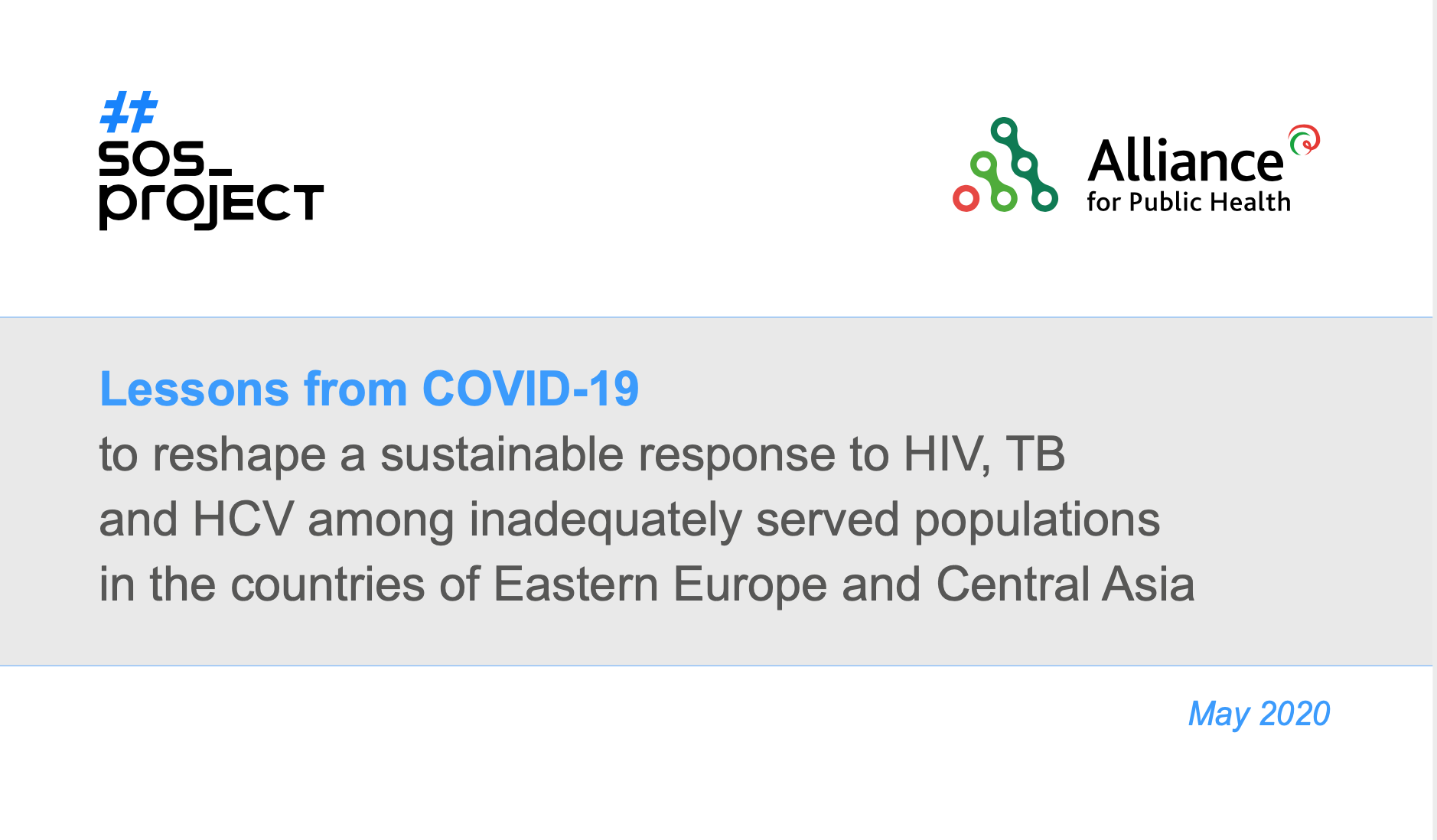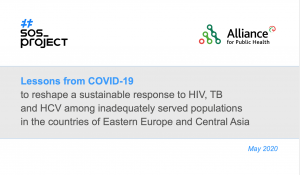As a result of the COVID-19 pandemic, health systems around the world have to become more robust, flexible, and results-oriented.
Changes have been made in the approach that some health systems have taken to the delivery of a range of services, including interventions for the management of HIV and opioid dependence as well as the treatment of tuberculosis (TB) and viral hepatitis C (HCV) among key population groups. Many of these changes have been welcomed by communities, with a window of opportunity to revisit and refresh issues of drug use regulations, policing, amnesty for people in prisons and other closed settings.
In early May 2020, a LIVE discussion was held on Youtube (in English) and simultaneously on Facebook (in Russian) by the Sustainability of Services (SoS) Project of the Alliance for Public Health (APH) funded by the Global Fund to Fight AIDS, TB and Malaria, that brought together experts to consider opportunities to improve the sustainability of HIV programmes for key populations in 14 countries of Eastern Europe and Central Asia (EECA) as a result of the response to the COVID-19 pandemic.
Presenters included Volodymyr Kurpita, a regional expert on public health and HIV/AIDS based in Ukraine; Fifa Rahman, a specialist in International Trade/Intellectual Property Law and a UNITAID Board Member for NGOs; Anton Basenko, a regional expert on drug policy, community, gender and human rights with the Alliance for Public Health; and Niamh Eastwood, the Executive Director of Release, the British centre of expertise on drugs and drug law; the session was moderated by Andriy Klepikov, the Executive Director of the Alliance for Public Health and a member of the Glob- al Fund Board for the Developing Countries NGO Delegation.
The online event considered which developments should be retained and promoted as countries pass through the peak of the epidemic and grow accustomed to the presence of the virus at a more manageable level. Specifically, how recent actions at global and national levels in response to COVID-19 have provided opportunities to increase access to medicines and services, the role of human rights within health systems, and how to build upon the newly emerging good practices.



